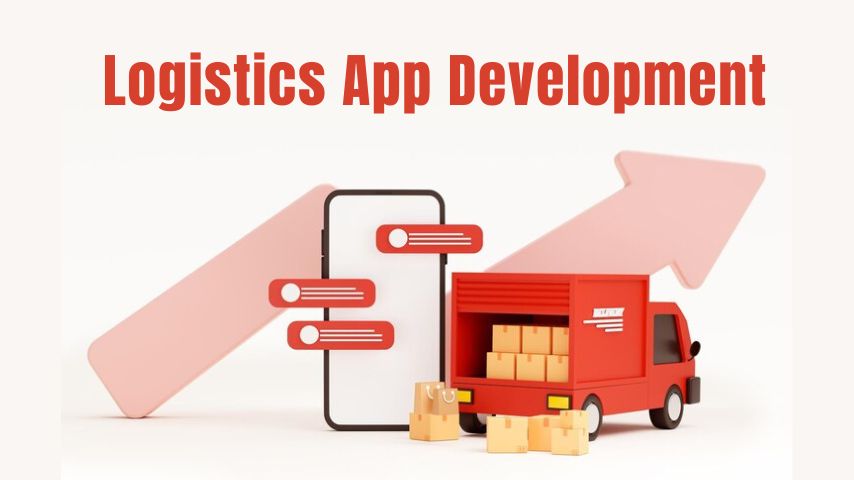The logistics industry is the backbone of global trade, ensuring the seamless movement of goods from one point to another. Technology integration has revolutionized this sector recently, making operations more efficient, transparent, and responsive. Among the various technological advancements, logistics app development stands out as a game-changer, offering businesses the tools they need to thrive in a competitive market. As we look towards 2024, it’s essential to understand the evolving market trends and the role of a Logistics app development company in shaping the future of logistics.
The Rise of Logistics App Development
The journey of logistics app development has been remarkable. Historically, logistics relied heavily on manual processes and paperwork. However, the digital transformation wave has brought about a significant shift. The pandemic further accelerated this change, highlighting the need for robust, scalable, and reliable logistics solutions. According to recent statistics, the global logistics app market is expected to grow at a CAGR of 11.7% from 2021 to 2026, underscoring the increasing demand for digital solutions.
Key Features of a Successful Logistics App
A well-designed logistics app can make a world of difference for businesses. Some of the essential features include:
-
Real-time tracking: This allows businesses and customers to monitor the location and status of shipments in real-time, enhancing transparency and trust.
-
Inventory management: Efficient inventory management tools help companies keep track of their stock levels, ensuring they can meet demand without overstocking.
-
Route optimization: Advanced algorithms can calculate the most efficient delivery routes, reducing fuel consumption and delivery times.
-
Communication tools: Integrated communication tools facilitate seamless interaction between drivers, dispatchers, and customers, ensuring everyone is on the same page.
Market Trends in 2024
As we move into 2024, several trends are poised to shape the logistics app development landscape:
-
Increased demand for real-time visibility: Businesses increasingly seek real-time insights into their operations to make informed decisions quickly.
-
Integration with IoT and AI: IoT devices and AI-driven analytics are set to enhance operational efficiency and predictive maintenance in logistics.
-
Sustainability and green logistics: With growing environmental concerns, there is a push towards more sustainable logistics practices, including eco-friendly transportation and packaging solutions.
-
Autonomous vehicles and drones: The adoption of autonomous delivery vehicles and drones, which offer faster and more efficient delivery options, is expected to rise.
-
Blockchain for transparency: Blockchain technology can provide a tamper-proof record of transactions, enhancing transparency and trust in the supply chain.
Benefits of Logistics Apps for Businesses
Implementing a logistics app offers numerous advantages:
-
Enhanced efficiency: Automating routine tasks and optimizing operations leads to significant efficiency gains.
-
Cost reduction: By reducing manual errors and optimizing routes, businesses can cut operational costs.
-
Improved customer service: Real-time tracking and communication tools enhance the customer experience, leading to higher satisfaction and loyalty.
-
Data-driven decision-making: Access to real-time data and analytics helps businesses make informed decisions and stay ahead of the competition.
Challenges in Logistics App Development
Despite the benefits, developing a logistics app comes with its own set of challenges:
-
Data security and privacy: Ensuring the security of sensitive data is paramount, requiring robust encryption and compliance with data protection regulations.
-
Integration with existing systems: Seamlessly integrating the app with existing ERP and CRM systems can be complex and requires careful planning.
-
User adoption and training: It is crucial for the app’s success to ensure that all users, from drivers to managers, are comfortable using it.
-
Keeping up with technological advancements: The rapid pace of technological change means that apps must be continuously updated to stay relevant.
Choosing the Right Logistics App Development Company
Selecting the right partner for your logistics app development project is critical. Here are some key considerations:
-
Experience and expertise: Look for a company with a proven track record in logistics app development.
-
Customized solutions: Ensure the company can tailor the app to meet your specific business needs.
-
Client testimonials and case studies: Check for reviews and case studies to gauge the company’s performance and customer satisfaction.
Role of a Mobile App Development Company in Logistics
A mobile app development company is vital to bringing your logistics app to life. From initial concept to final deployment, they manage the entire development process, ensuring the app meets your business requirements. They employ agile development methodologies to deliver high-quality apps within a stipulated timeline and budget. Post-launch support and maintenance are crucial to ensure the app remains functional and up-to-date.
On-Demand App Development and Its Impact on Logistics
The rise of on-demand services has significantly impacted the logistics industry. On-demand logistics apps enable businesses to offer fast, reliable delivery services that meet the growing consumer demand for convenience. Companies like Uber Freight and Postmates have set new standards in the industry, showing the potential of on-demand logistics solutions.
Integrating Advanced Technologies in Logistics Apps
To stay competitive, logistics apps must integrate advanced technologies:
-
Artificial intelligence and machine learning: These technologies can optimize various aspects of logistics, from demand forecasting to route planning.
-
Internet of Things (IoT): IoT devices provide real-time data on vehicle performance, environmental conditions, and inventory levels.
-
Big data analytics: Analyzing large datasets helps businesses identify trends, optimize operations, and improve decision-making.
Sustainability in Logistics App Development
Sustainability is becoming a key focus in logistics. Logistics apps can contribute to greener practices by:
-
Eco-friendly logistics solutions: Promoting the use of electric vehicles and optimizing routes to reduce fuel consumption.
-
Reducing carbon footprint with technology: Implementing technologies like AI and IoT to enhance efficiency and minimize waste.
-
Case studies of sustainable logistics apps: Highlighting successful examples of apps that have positively impacted the environment.
Future of Logistics App Development
Looking ahead, the future of logistics app development is filled with exciting possibilities. Emerging technologies such as quantum computing and 5G connectivity promise to revolutionize the industry further. However, businesses must stay agile and adaptable to leverage these advancements effectively.
Conclusion
The logistics industry is undergoing a significant transformation, driven by technological advancements and changing market demands. A Logistics app development company plays a crucial role in this evolution, providing businesses with the tools to enhance efficiency, reduce costs, and improve customer service. As we move into 2024, staying abreast of market trends and embracing innovative solutions will be crucial to success in logistics.




